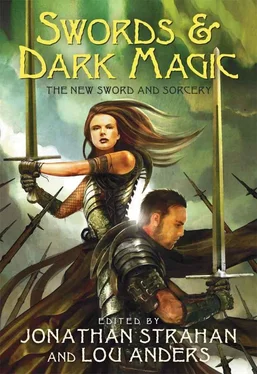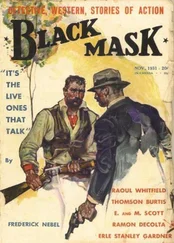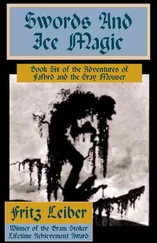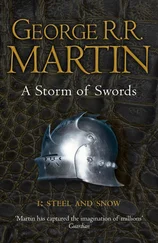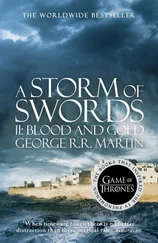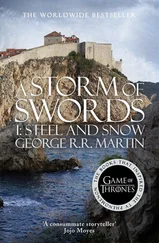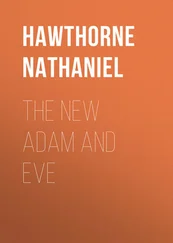So everybody had a prospect, and he was fairly sure his was bright. He just didn’t know what it was.
Until Tewk walked up as he was standing, looking out the open door of their little house, and laid a hand on his shoulder.
“You’re pretty good,” Tewk said. “The world’s wider than Wiscezan, you know. I’ve got a cousin up in Peghary who wants a little advice. Ever ridden?”
He hadn’t. If he were Jezzy, with Jezzy’s talent, he wouldn’t worry about it; but horses scared him. They were tall. They had intentions of their own.
Tewk was asking him to go on the road with him. And see places. Peghary. He’d only heard of that place.
“Master might need me,” he said. He still had that duty. Master had leaned on him for a long time.
“I’m doing very well,” Master said. “I can spare you a few months. I’ll be busy with these two. They’re getting old enough. They’ll take care of things.”
Master never had said anything about his room in the house. And with Tewk—
He’d gotten used to Tewk. Tewk was smart in different ways than Master. There were things still to learn.
Places to go.
He nodded, looking out on the dust of the Alley.
Fact was, Tewk needed him. He wasn’t the only one who put illusions on things. Cousin in Peghary, hell.
Maybe there even was a cousin.
“Sure,” he said. “All right. I can ride.”
A RICH FULL WEEK
K. J. Parker
Raised in rural Vermont, K. J. PARKER is part of the new generation of fantasy writers who, over the past ten years, has been publishing work that has been redefining sword and sorcery. Parker’s first novel, Colors in the Steel , appeared in 1998 and was followed by two further volumes in the Fencer trilogy, the Scavenger trilogy, and the critically acclaimed Engineer trilogy. Parker’s most recent books are novels The Company and The Folding Knife , and novella “Purple and Black.” Having worked in law, journalism, and numismatics, Parker is married to a solicitor, lives in southern England, and, when not writing, likes to make things out of wood and metal.
He looked at me the way they all do. “You’re him, then.”
“Yes,” I said.
“This way.”
Across the square. A cart, tied up to a hitching post. One thin horse. Not so very long ago, he’d used the cart for shifting dung. I sat next to him, my bag on my knees, tucking my feet in close, and laid a bet with myself as to what he’d say next.
“You don’t look like a wizard,” he said.
I owed myself two nomismata. “I’m not a wizard,” I said.
I always say that.
“But we sent to the Fathers for a—”
“I’m not a wizard,” I repeated, “I’m a philosopher. There’s no such thing as wizards.”
He frowned. “We sent to the Fathers for a wizard,” he said.
I have this little speech. I can say it with my eyes shut, or thinking about something else. It comes out better if I’m not thinking about what I’m saying. I tell them, we’re not wizards, we don’t do magic, there’s no such thing as magic. Rather, we’re students of natural philosophy, specializing in mental energies, telepathy, telekinesis, indirect vision. Not magic; just science where we haven’t quite figured out how it works yet. I looked at him. His hood and coat were homespun—that open, rather scratchy weave you get with moorland wool. The patches were a slightly different color; I guessed they’d been salvaged from an even older coat that had finally reached the point where there was nothing left to sew onto. The boots had a military look. There had been battles in these parts, thirty years ago, in the civil war. The boots looked to be about that sort of vintage. Waste not, want not.
“I’m kidding,” I said. “I’m a wizard.”
He looked at me, then back at the road. I hadn’t risen in his estimation, but I hadn’t sunk any lower, probably because that wasn’t possible. I waited for him to broach the subject.
By my reckoning, three miles out of town, I said, “So tell me what’s been happening.”
He had big hands; too big for his wrists, which looked like bones painted flesh-color. “The Brother wrote you a letter,” he said.
“Yes,” I replied brightly. “But I want you to tell me.”
The silence that followed was thought rather than rudeness or sulking. Then he said, “No good asking me. I don’t know about that stuff.”
They never want to talk to me. I have to conclude that it’s my fault. I’ve tried all sorts of different approaches. I’ve tried being friendly, which gets you nowhere. I’ve tried keeping my face shut until someone volunteers information, which gets you peace and quiet. I’ve read books about agriculture, so I can talk intelligently about the state of the crops, milk yields, prices at market, and the weather. When I do that, of course, I end up talking to myself. Actually, I have no problem with talking to myself. In the country, it’s the only way I ever get an intelligent conversation.
“The dead man,” I prompted him. I never say the deceased .
He shrugged. “Died about three months ago. Never had any bother till just after lambing.”
“I see. And then?”
“It was sheep to begin with,” he said. “The old ram, with its neck broke, and then four ewes. They all reckoned it was wolves, but I said to them, wolves don’t break necks, it was something with hands did that.”
I nodded. I knew all this. “And then?”
“More sheep,” he said, “and the dog, and then an old man, used to go round all the farms selling stuff, buttons and needles and things he made out of old bones; and when we found him, we reckoned we’d best tell the boss up at the grange, and he sent down two of his men to look out at night, and then the same thing happened to them. I said, that’s no wolf. Knew all along, see. Seen it before.”
That hadn’t been in the letter. “Is that right?” I said.
“When I was a kid,” the man said (and now I knew the problem would be getting him to shut up). “Same thing exactly: sheep, then travelers, then three of the duke’s men. My grandad, he knew what it was, but they wouldn’t listen. He knew a lot of stuff, Grandad.”
“What happened?” I asked.
“Him and me and my cousin from out over, we got a couple of shovels and a pick and an ax, and we went and dug up this old boy who’d died. And he was all swelled up, like he’d got the gout all over, and he was purple , like a grape. So we cut off his head and shoveled all the dirt back, and we dropped the head down an old well, and that was the end of that. No more bother. Didn’t say what we’d done, mind. The Brother wouldn’t have liked it. Funny bugger, he was.”
Well, I thought. “You did the right thing,” I said. “Your grandfather was a clever man, obviously.”
“That’s right,” he said. “He knew a lot of stuff.”
I was doing my mental arithmetic. When I was a kid —so, anything from fifty-five to sixty years ago. Rather a long interval, but not unheard of. I was about to ask if anything like it had happened before then, but I figured it out just in time. If wise old Grandfather had known exactly what to do, it stood to reason he’d learned it the old-fashioned way: watching or helping, quite possibly more than once.
“The man who died,” I said.
“Him.” A cartload of significance crammed into that word. “Offcomer,” he explained.
“Ah,” I said.
“Schoolteacher, he called himself,” he went on. “Dunno about that. Him and the Brother, they tried to get a school going, to teach the boys their letters and figuring and all, but I told them, waste of time in these parts, you can’t spare a boy in summer, and winter, it’s too dark and cold to be walking five miles there and five miles back, just to learn stuff out of a book. And they wanted paying, two pence twice a year. People around here can’t afford that for a parcel of old nonsense.”
Читать дальше
